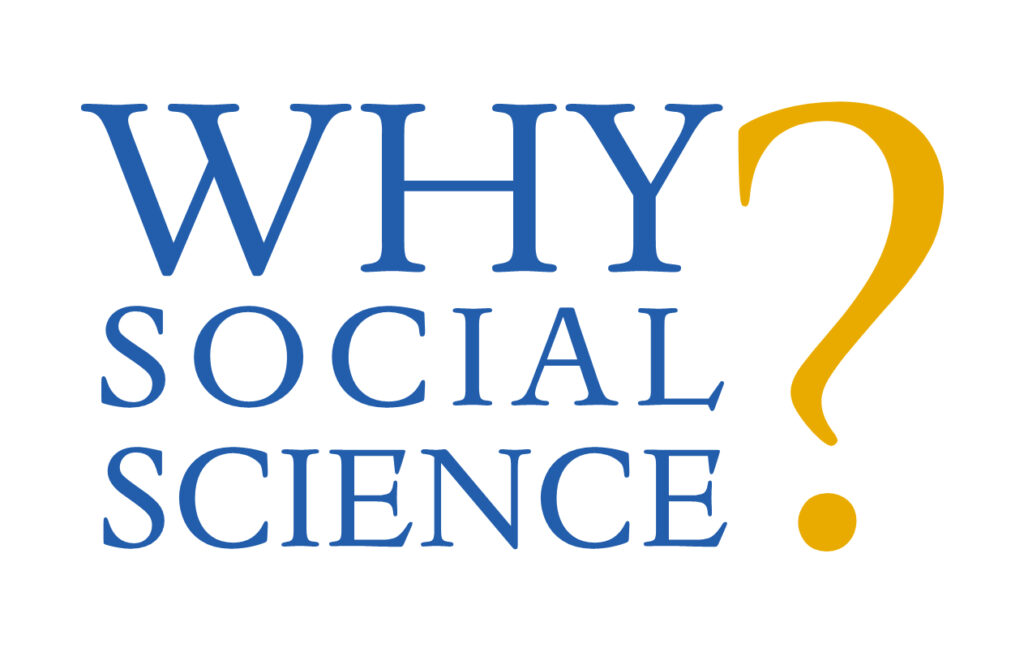Issue 10 (May 14)
2024 Social Science Advocates Answer “Why Social Science?”
This month’s Why Social Science? post comes from three participants from this year’s Social Science Advocacy Day who reflected upon their advocacy experiences and the importance of advocating for the social sciences.
Read on for more.
Congress to Review Key Agency Budget Requests Amid More Supplemental Funding Discussions
Over the past few weeks, Congress has been holding budget oversight hearings on various agencies, working through the fiscal year (FY) 2025 budget process. On May 16, the House Science, Space, and Technology Committee is scheduled to review the National Science Foundation’s (NSF) priorities in the hearing, Oversight and Examination of the National Science Foundation’s Priorities for 2025 and Beyond. COSSA will continue to update on the budget hearings of key agencies as they are held.
Following emergency supplemental funding passed in late April, Congress is still in discussions regarding foreign aid supplemental packages, with attention split between these packages and the FY 2025 appropriations process. While there has not yet been movement on the twelve appropriations bills in either the House or the Senate, it’s anticipated that these bills will be drafted following the budget hearings in their respective committees. However, with the upcoming election season, all House Representatives and a third of U.S. Senators will be turning towards their own campaigns, signaling a potential disruption to the 2025 budget process.
Stay tuned to COSSA’s continued coverage of the FY 2025 budget process.
PCAST Releases Report on Supercharging Research: Harnessing AI to Meet Global Challenges
The President’s Council of Advisors on Science and Technology (PCAST) announced a new report on Supercharging Research: Harnessing Artificial Intelligence (AI) to Meet Global Challenges. The report was developed in response to President Biden’s Executive Order on the Safe, Secure, Trustworthy Development and Use of Artificial Intelligence (see previous COSSA coverage) and explores the positive and negative impacts of AI technologies. PCAST emphasizes the importance of AI being used as a tool, not a replacement, for workers. PCAST included the following recommendations for the Biden Administration in the report:
- Expand access to AI resources through programs such as the National Artificial Intelligence Research Resource (NAIRR) pilot housed within the National Science Foundation (NSF) (see previous COSSA coverage);
- Expand federal data sets for research while implementing safeguards to protect user data;
- Support collaboration in research on AI between industries;
- Develop “principles of responsible, transparent, and trustworthy” for AI research;
- Encourage innovative uses of AI to expand the positive impact of the technology.
The full report can be viewed here in addition to PCAST’s letter to the President and the Executive Summary of the report.
NIMH Workshop: Discrimination as a Social Determinant of Mental Health Disparities
On June 6, the National Institute of Mental Health (NIMH), within the National Institutes of Health (NIH), will be hosting a one-day workshop with expert investigators, NIH staff, and the public to discuss the science of discrimination and mental health disparities, and to identify research gaps and opportunities in mental health disparities research.
Register to attend here.
NSF Seeks Nominations for Advisory Committees
The National Science Foundation (NSF) has issued its annual call for recommendations for membership to its various advisory committees and technical boards. These committees advise NSF’s offices and directorates on program management, research direction, and policies impacting the agency. Committees of particular interest to the COSSA community include the Advisory Committee for Social, Behavioral and Economic Sciences (SBE) and the Advisory Committee for STEM Education (EDU). Guidelines for recommendations and committee contact information can be found here. Recommendations for membership are maintained for 12 months.
DBASSE Announces Hauser 2024 Spring Webinar Series
The National Academies of Sciences, Engineering, and Medicine’s Division of Behavioral and Social Sciences and Education (DBASSE) has announced their Hauser 2024 Spring Webinar Series titled, “Navigating the Era of Artificial Intelligence: Achieving Human-AI Harmony“.
The two-part webinar series will explore DBASSE’s expertise in artificial intelligence and highlight the value of social and behavioral science perspectives. This first webinar will expand on insights from the 2022 report, Human-AI Teaming: State-of-the-Art and Research Needs, to focus on how the presence of artificial intelligence systems affects the ways people work in teams. The session will explore the efficiencies and inefficiencies created by integrated AI systems and will highlight applications where considering AI as a teammate may improve project outcomes. Special attention will be paid to the role of policymakers and agencies in promoting and integrating AI systems in a way that adds value to team environments.
Part one of the webinar series will take place on May 23. Register here.
Registration for the second webinar, “Navigating the Era of Artificial Intelligence: The Crucial Role of Social Sciences”, will be coming soon.


